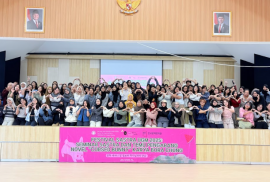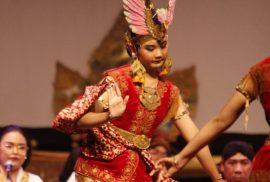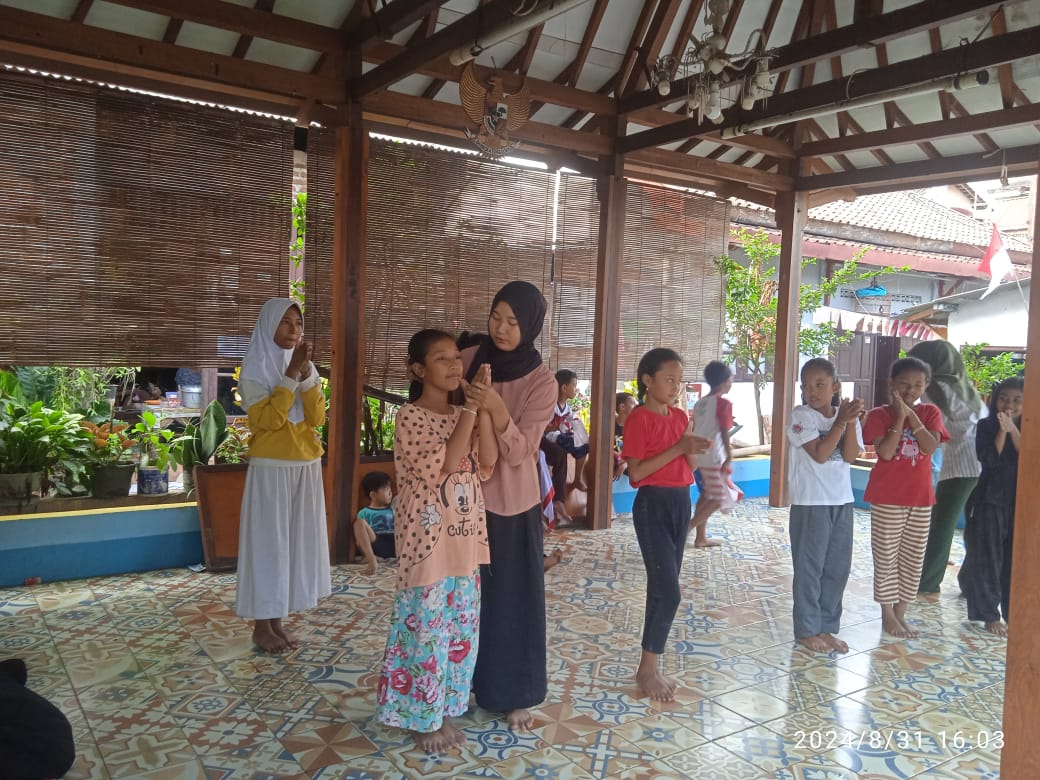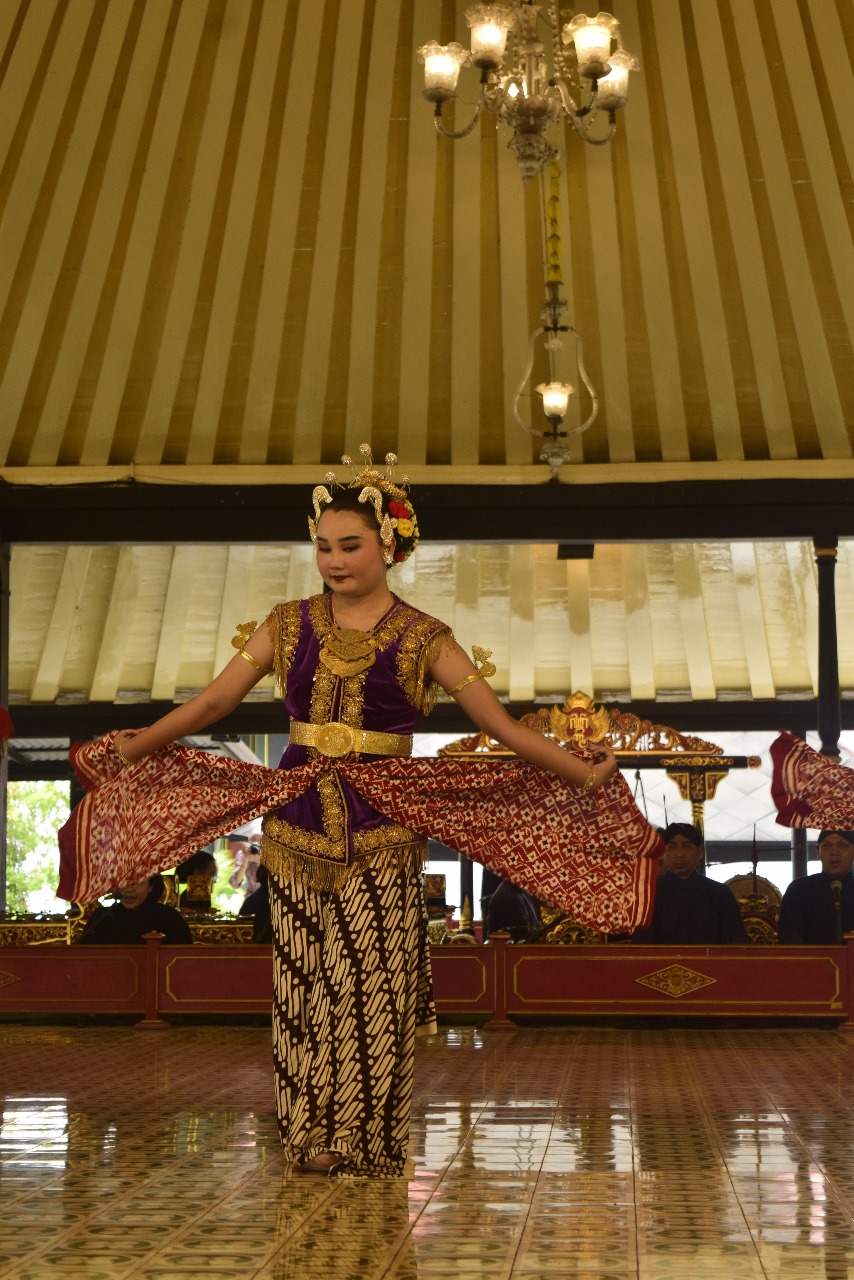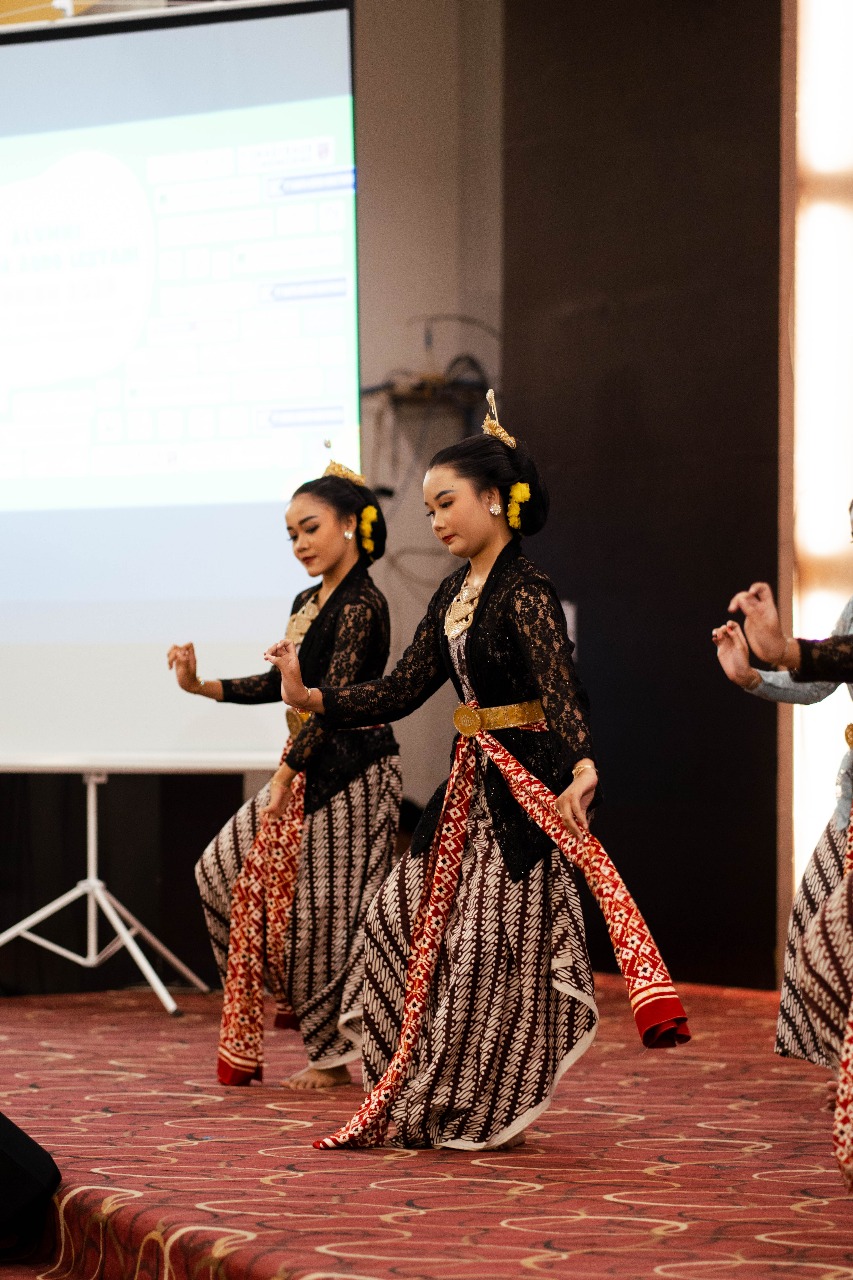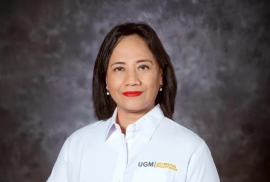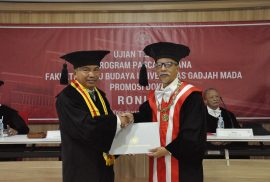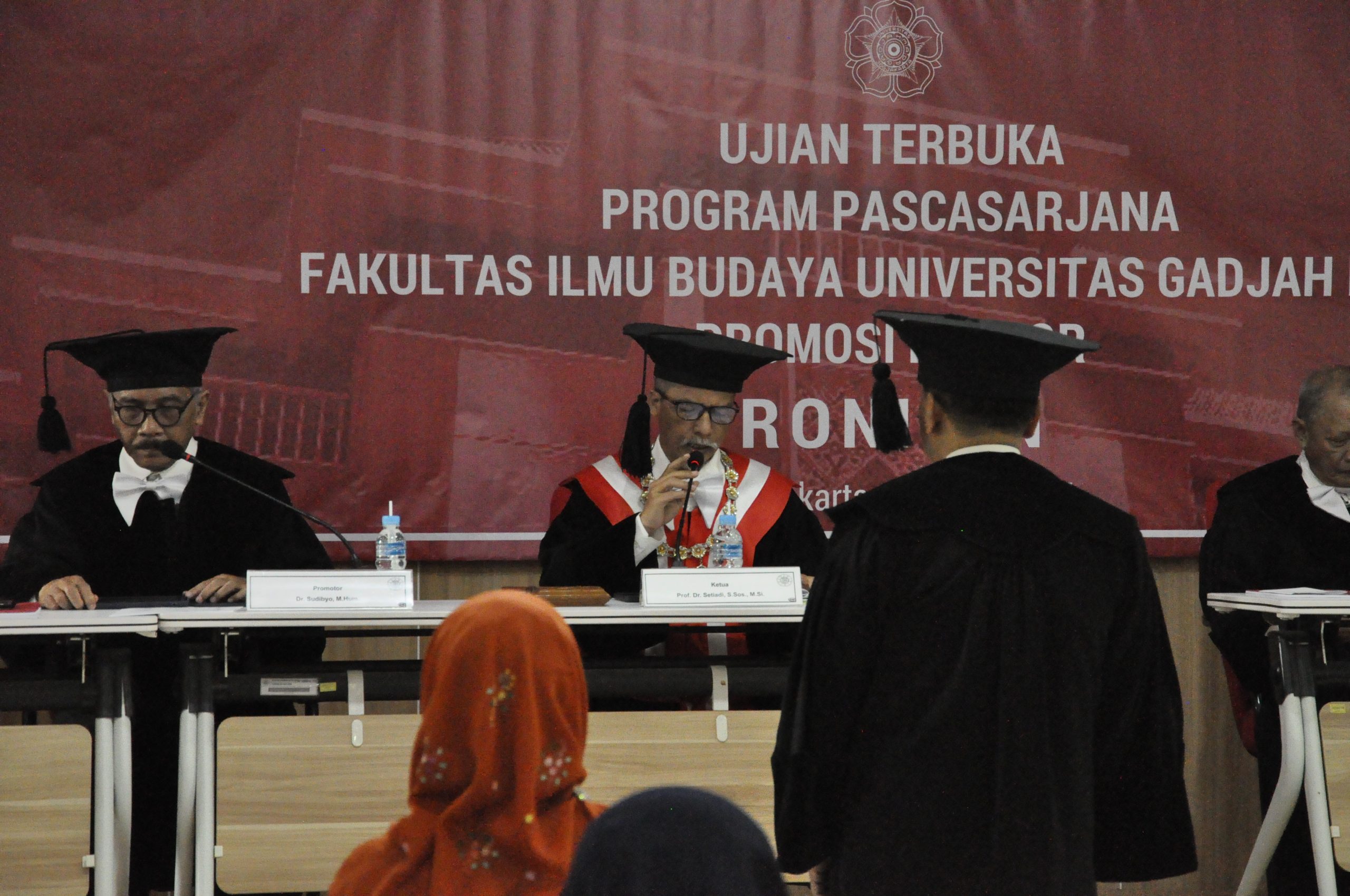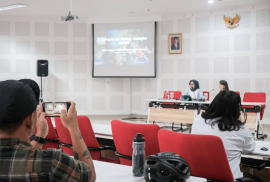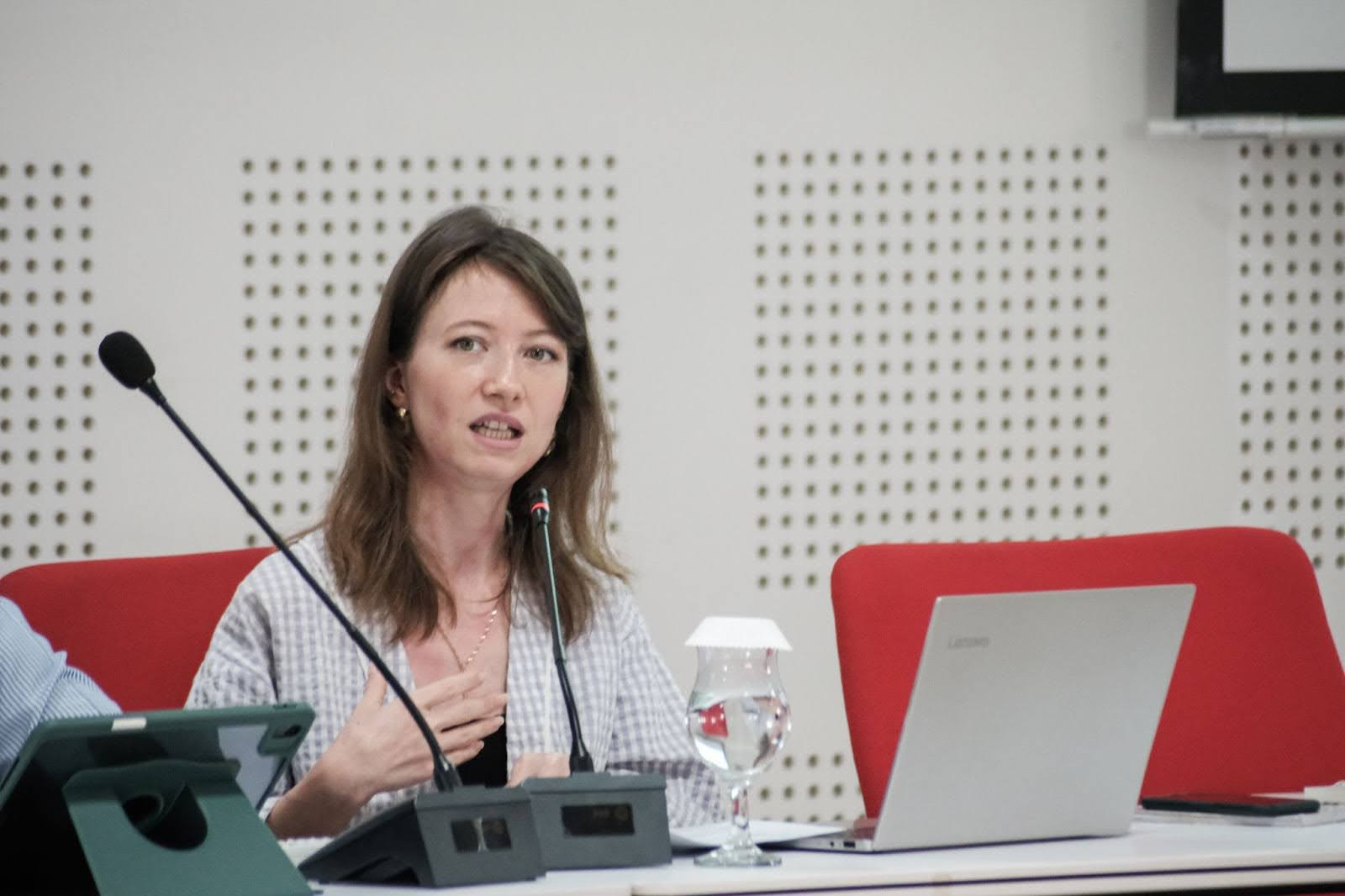Yogyakarta, September 6, 2025 — The Korean Language and Culture Study Program, Faculty of Cultural Sciences, Universitas Gadjah Mada, through the K-Lit UGM community, held a Talk Show on the novel Cursed Bunny and an Author Meet with renowned writer Chung Bora. This event was made possible through the collaboration and sponsorship of the Literature Translation Institute of Korea (LTI Korea), King Sejong Institute Yogyakarta, and the Korean Language and Culture Study Program, creating a space for dialogue between writers and readers across nations.
In the main session, Chung Bora shared her creative insights and responded to participants’ questions. Many were intrigued by the sources of inspiration behind her horror-themed stories. The author explained that her ideas often stem from everyday experiences, which she then intertwines with horror elements to spark readers’ imagination. Her works also highlight various social issues faced by women, showing how literature can serve as a medium for reflection and empowerment.
The discussion was lively and engaging, with many participants actively joining the Q&A session. This event not only provided an opportunity to learn more about Chung Bora’s works but also expanded literary horizons and fostered international academic networking.
The program concluded with a group photo and a book-signing session, leaving a lasting impression on all attendees. Through activities like this, K-Lit UGM and LTI Korea continue to promote cultural exchange, enrich students’ perspectives, and strengthen global literary connections through literature.
(Nisa Khairuna Sabilla/ Sherina Azmi A.)

